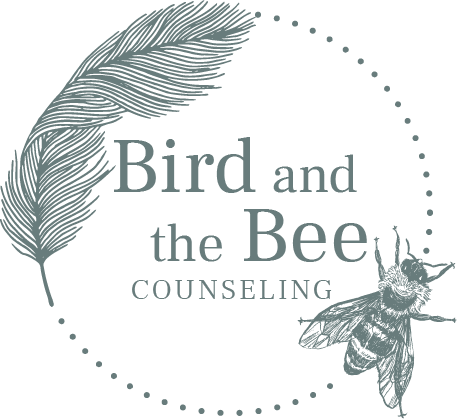
Brianne Billups Hughes, LMFT is a psychotherapist offering online therapy to California residents for individuals and couples with expertise in sexual and reproductive wellness. To schedule a therapy appointment with Brianne, contact her today.
Grief is often used as a word to describe the feelings of mourning and sadness that follow the death of a loved one.
Death is a final event that is culturally recognized and many gather and offer support for the bereaved. There are many rituals after death, usually in the form of a wake or a funeral. However, the word grief isn’t always used or recognized in other circumstances where it also applies. People may not recognize the anguish they feel when someone they love changes in some way that makes them present in body but otherwise unrecognizable as who they used to be.
Ambiguous grief or loss can include when a when a loved one’s mental health or cognizance is impaired through:
- Dementia
- Psychosis
- Depression
- Hoarding
- Agoraphobia
- Brain Injury
- Stroke
- Other illness
Alcoholism and Addiction
Being around someone who is experiencing alcoholism or addiction is another painful experience. People often experience two versions of their loved one. When their loved one is drunk or high they become unrecognizable and are sometimes capable of saying or doing irrational or reckless things. Additionally, this can sometimes result in the person being absent or neglectful of themselves and their relationships. Never knowing how they will act when caught up in their addiction or not fully trusting that they will remain sober can cause feelings of doubt and uncertainty that can linger. In many cases, ongoing addiction can create other longer term health issues even in the event of sobriety. This leaves those around that person in a constant state of unending grief and heartache wishing they just had the “good side” of the person they love.
Estrangement
Familial estrangement is usually the result of many attempts to create harmony that have resulted in more conflict or turmoil to the point that one or both parties feel so hurt that the relationship cannot continue. It can also be the result of one or more serious violations that lead to complete mistrust. When family members are no longer on speaking terms it can sometimes be the best choice out of what feels like very challenging options. However, even when someone has peace with the reasons why the relationship is estranged, there is often so much grief around what someone hoped that relationship would be or what it was in the past. Coming to terms with that loss can be especially tender around significant events or milestones when the family member is still alive but not present or supportive in the way they had wanted.
Ambiguous Grief in relation to self:
Sometimes grief can come up around people remembering previous versions of themselves. As people age, inevitably parts of who they used to be are left behind. Friendships change and people grow apart. Chapters of their lives close and they may know that things will never be the same again. Additionally, there may be unexpected changes in our ability to do the things they used to love due to illness or injury. Oftentimes the responsibilities and obligations can pile up in a way that feels limiting and they may grieve the freedom they used to possess. Or even perhaps, there may be a sense of loss over youth or not taking advantage of things while they still could. All of these feelings can fall under the umbrella of grief even if not initially noticed at first glance. Seeking help from a supportive professional can help you process these emotions and find a way to peace and wholeness even in loss. You are not alone.

